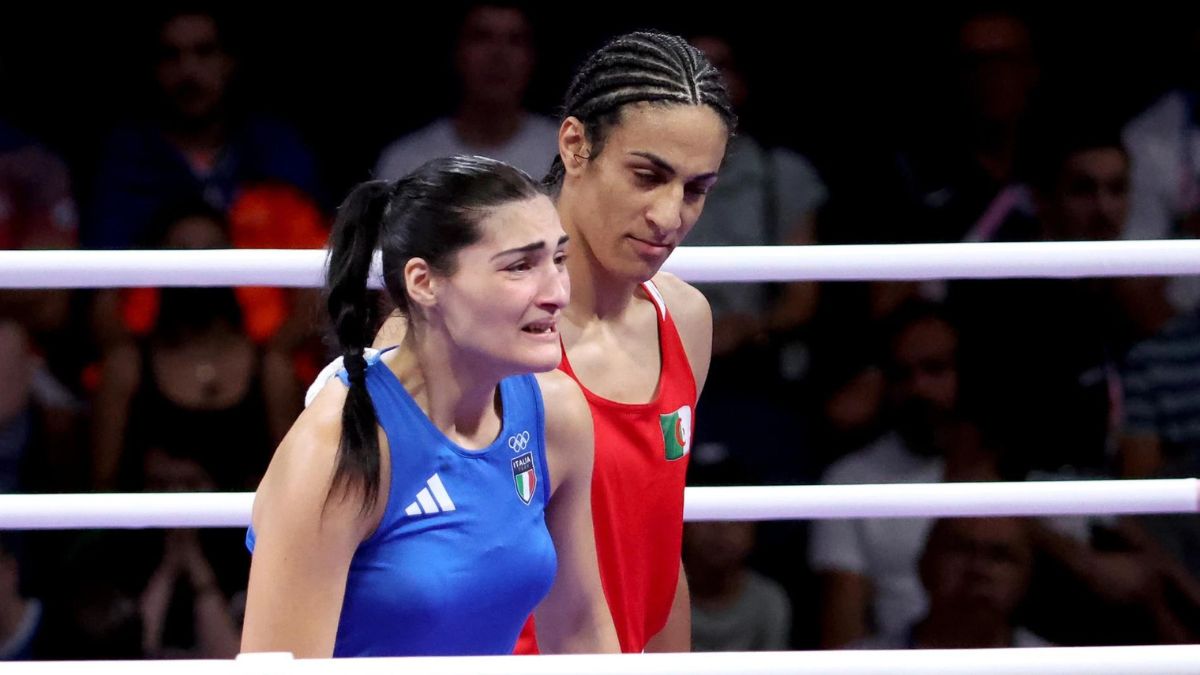The case of Imane Khelif highlights the complexities and challenges faced by international sports organizations on gender and eligibility issues.
Full article
Imane Khelif: Algerian boxer defying controversy at Paris Olympics
Imane Khelif has become one of the most prominent and controversial names of the Paris Olympics. The Algerian boxer, who qualified for the Olympic final in the -66kg category after defeating Thailand's Janjaem Suwannapheng by unanimous decision, is one step away from gold. Her next challenge will be to face China's Liu Yang, who defeated Taiwan's Bien Chin Chen in the other semifinal.
Khelif's career at these Games has not been without controversy. The International Boxing Association (IBA), disqualified by the International Olympic Committee (IOC) due to irregularities, disqualified Khelif from the 2023 world championships. The reason given by the IBA was that Khelif possesses XY chromosomes and higher than normal testosterone levels in women, which they claimed made her ineligible to compete in the women's category. This decision also affected Taiwanese boxer Lin Yu-ting.
However, the IOC has protected both athletes, arguing that they were born, raised and compete as women, as well as possessing women's passports. This IOC intervention allowed Khelif and Lin Yu-ting to participate in the Paris Olympics, defying the sanction imposed by the IBA.
Despite the controversy, Khelif has proven herself in the ring. Prior to her bout against Suwannapheng, Khelif advanced in the competition by defeating Italy's Angela Carini, whose bout lasted just 43 seconds after Carini retired. In her next bout, she defeated Hungary's Anna Luca Hamori by unanimous decision, consolidating her position in the semifinals.
The bout against Suwannapheng was a clear example of Khelif's skill and determination. She dominated the fight from start to finish, earning the favor of all the judges. Now, he is preparing for the final to be held next Friday, with a chance to take home a gold medal.

Khelif's situation has generated widespread debate about inclusion and fairness in sport. Some sectors of public opinion consider it unfair for Khelif to compete against women, citing physical advantages derived from her genetic characteristics. On the other hand, there are those who defend her right to compete, arguing that the boxer has been the victim of a campaign that goes beyond sports, touching on aspects of discrimination and human rights.
The political context has also played an important role in this conflict. The IOC and the IBA are in the midst of a dispute that includes allegations of corruption and ties to Russia, adding an additional layer of complexity to Khelif's situation.
Throughout the controversy, Khelif has kept a low profile, focusing on his athletic performance. His post-fight tears reflect the emotional toll of competing under the weight of controversy and accusations. Regardless of the outcome of the final, Khelif will leave Paris with a gold or silver medal, a testament to her skill and endurance.
Imane Khelif's case highlights the complexities and challenges facing international sports organizations on issues of gender and eligibility. The IOC's intervention on behalf of Khelif and Lin Yu-ting underscores the need for a more inclusive and comprehensive approach to sport that considers not only biological characteristics, but also the personal context and identity of athletes.
As Khelif prepares for his final showdown, the sporting world is watching closely, not only for the promise of an exciting bout, but also for the wider implications that his participation and possible victory may have on the future of boxing and sport in general.
Comments
Related links
Main menu












